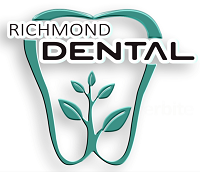Have you ever awakened with a sore jaw, experienced clicking when chewing, or struggled with nagging headaches? These little nuisances might be indications of something much more significant, TMJ disorder. All too frequently underrated, TMJ can insidiously invade your life and introduce disruptions that impact your comfort level, routines, and even your health overall.
Let us dive a little bit deeper into what TMJ is, how it can disrupt your daily life, and how to cure or manage the pain.
What Is TMJ?
TMJ is the temporomandibular joint, which joins your lower jawbone to your skull. You use it for simple movements like chewing, speaking, yawning, and laughing. When the joint is not properly functioning because of stress, misalignment, trauma, or something else, it causes TMJ disorder, a condition that may make your jaw, face, and other areas ache and tighten constantly.
Understand what TMJ symptoms are in order to address the condition before it can begin to interfere with your quality of life.
Common TMJ Symptoms to Watch For
TMJ signs can differ from person to person, but they often include:
- Jaw clicking or popping
- Jaw pain or tenderness
- Limited jaw movement or “lockjaw”
- Headaches or migraines
- Ringing in the ears (tinnitus)
- Facial swelling or discomfort
- Pain while chewing or speaking
- Shoulder and neck stiffness
These symptoms may come and go or become chronic. In either case, it’s worth paying attention and talking to a dental professional.
TMJ Disorder Causes You Should Know
So, why does TMJ disorder occur? It typically happens for more than one reason and not one reason alone. Some of its most common causes are
- Teeth grinding or clenching (most often at night)
- Trauma or jaw injury
- Arthritis of the joint
- Crooked bite or teeth
- Stress-related muscle tension
- Genetic or endocrine conditions
- Repeated habit of chewing (such as gum, nails, or hard foods)
Some of the causes are temporary and some need long-term treatment to prevent worsening of the disorder.
The Impact of TMJ on Your Daily Routine
Having TMJ isn’t just about jaw discomfort, it affects your whole day. From struggling to enjoy your favorite foods to lying awake at night due to pain, TMJ can suppress your energy, mood, and overall wellness.
As a seasoned dentist in SW Calgary, we frequently see patients who did not realize that their jaw pain was resulting in secondary symptoms such as headaches, tiredness, or bad posture. Good reminder that our bodies are very interconnected, and pain in one spot can radiate to many more.
TMJ Treatment: What Are Your Options?
The good news is, TMJ treatment in SW Calgary has come a long way. There are several non-invasive, customized solutions available to reduce pain and improve jaw function. Depending on your symptoms and lifestyle, your dentist may recommend
- Custom nightguards to prevent teeth grinding
- Bite adjustments or orthodontics
- Jaw exercises and physical therapy
- Anti-inflammatory medications or muscle relaxants
- Relaxation techniques to ease stress-induced tension
- Dietary modifications (softer foods, limited chewing gum)
- Cold or heat therapy for inflammation and tight muscles
Early treatment is key—it not only relieves current discomfort but can also prevent future complications, making TMJ pain relief more effective and long-lasting.
How TMJ Affects Overall Health?
Beyond the jaw, TMJ disorder can trigger other health concerns:
- Sleep disturbances: TMJ-related pain can interrupt restful sleep, leading to daytime fatigue.
- Digestive issues: Difficulty chewing properly affects how your body digests food.
- Mental health strain: Chronic pain can lead to irritability, anxiety, and depression.
- Postural problems: TMJ pain may cause you to favor one side of the body, leading to neck or back strain.
When overlooked, TMJ disorder can set off a cycle of pain, poor sleep, and emotional stress that worsens your overall health.
When to See A Dentist?
If you notice persistent TMJ symptoms, especially ones interfering with eating, sleeping, or speaking, it’s time to get help. A dentist near you can assess your symptoms, take imaging if needed, and create a treatment plan tailored to your needs.
The earlier you seek treatment, the better your chance of avoiding long-term complications and getting back to your everyday life, pain-free.
Tips for Managing TMJ at Home
While professional care is essential, a few lifestyle changes can also help relieve TMJ symptoms:
- Use cold or warm compresses on the jaw
- Limit chewy or crunchy foods
- Practice relaxation exercises like deep breathing or meditation
- Avoid resting your chin on your hand
- Maintain good posture, especially at your desk
- Stretch and massage your jaw muscles gently
These small changes can go a long way in supporting your healing journey.
Breathe Easy, Chew Comfortably, Sleep Better—We’re Ready to Help!
TMJ disorder may start with a small click or ache, but it can quickly impact your comfort, productivity, and health. The good news? You don’t have to live with it. With personalized care and expert guidance, long-lasting TMJ pain relief is possible.
Richmond Dental Clinic is here to support your journey toward a healthier, more comfortable life. From diagnosis to customized treatment, we’re with you every step of the way. Take control of your comfort, book your visit today and let us help you feel your best.

